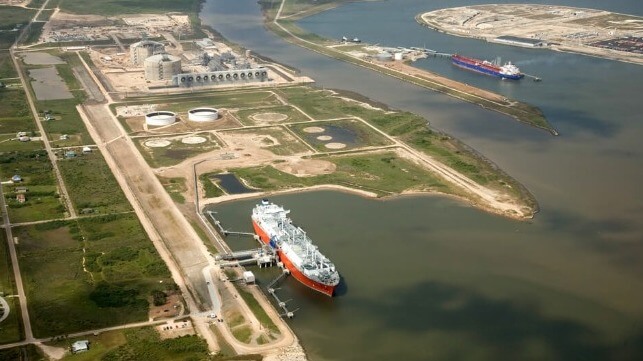Freeport LNG Expects December Restart After Cause of Explosion Report

Freeport LNG provided an update on the efforts to restart its natural gas liquefaction and LNG export facility in Louisiana delaying the date and timeline for scaling up to full production after the explosion in June that suspended operations at the facility. The confirmation of the delay came after the company had previously denied rumors of a delay and as Freeport released a summary of a report into the cause of the explosion.
The company reports that it is now targeting initial production at the facility in mid-December delayed from earlier targets first in October and then November. After the explosion in June, the company initially said production and export would only be suspended for a few weeks.
Each of Freeport LNG’s three liquefaction trains will be restarted and ramped up slowly and deliberately, with each train starting separately before restarting a subsequent train. It is expected that approximately 2 BCF per day of production will be achieved in January 2023. Full production utilizing both docks remains anticipated for March 2023.
The restart date is still subject to Freeport LNG meeting its regulatory requirements. The company reports that proposed remedial work activities for a safe restart of initial operations have been submitted to the relevant regulatory agencies for review and approval.
Freeport said that as of a week ago, approximately 90 percent of the reconstruction work necessary to commence initial operations, including utilization of all three liquefaction trains, two LNG storage tanks, and one dock, was complete. They anticipate that all the reconstruction work will be completed by the end of November.
After nearly five months of investigation by an independent, third-party investigation group, IFO Group, Freeport received the root cause analysis for the June 8 explosion as another independent consultant’s report also reviewed its LNG storage and transfer operating procedures, its control systems maintenance, and inspection procedures, and its personnel qualifications and training programs.
The root cause is being attributed to pressure safety valve testing procedure and car seal program deficiencies along with temperature indicator alarms that could have been used to warn operators of increasing temperatures in LNG piping during operations. On June 8, operators isolated a piping segment containing cryogenic liquefied natural gas which lacked the proper overpressure protection. The LNG then warmed and expanded due to exposure to ambient conditions, resulting in a boiling liquid, expanding vapor explosion, and rupturing of the piping segment.

that matters most
Get the latest maritime news delivered to your inbox daily.
Freeport LNG reports it has made significant enhancements to its PSV testing processes and car seal program, implemented procedural changes to avoid operating scenarios that could allow blocked-in LNG in piping segments, and revised its control system logic to alert control room operators to valve positions or temperature readings that indicate possible isolation of LNG in any piping segments. Freeport LNG is also updating its training program to address the causes of the incident, as well as the identification and diagnosis of abnormal operating conditions in the facility.
At the same time, the company reports it has undertaken a significant hiring effort to increase LNG plant employee staffing by over 30 percent, to reduce the amount of overtime, as well as create new functional departments within the organization that are focused on improved training, operational excellence, quality assurance, and improved business performance.
